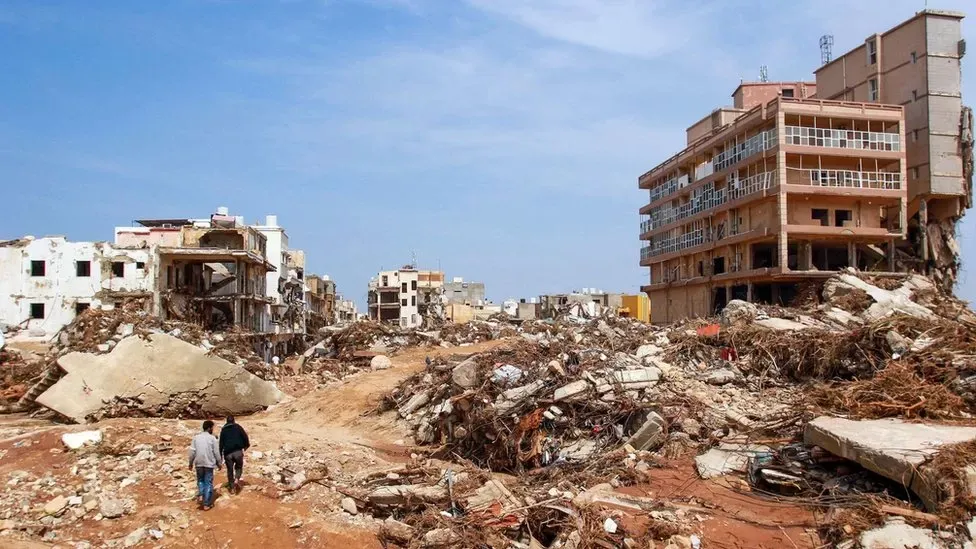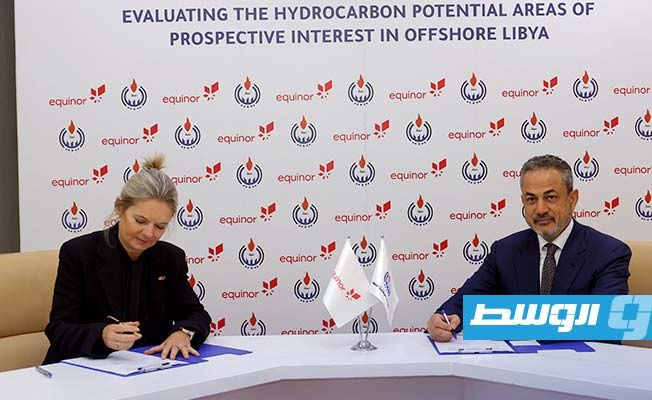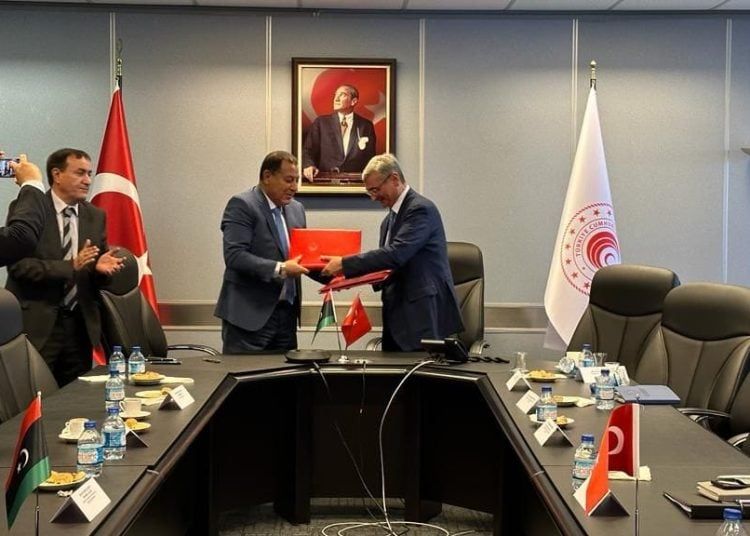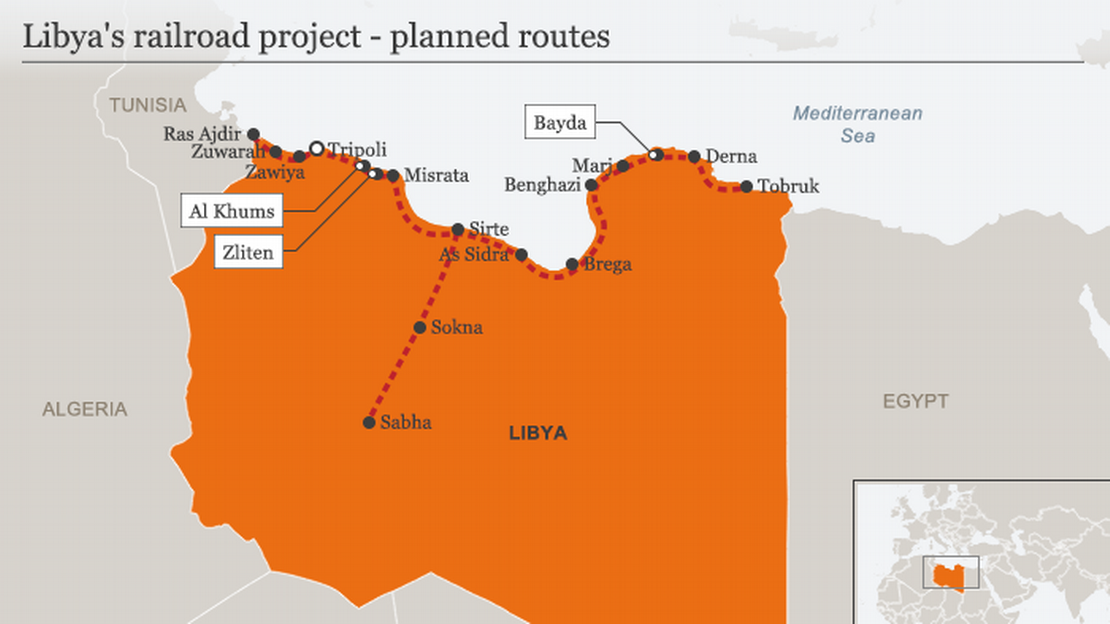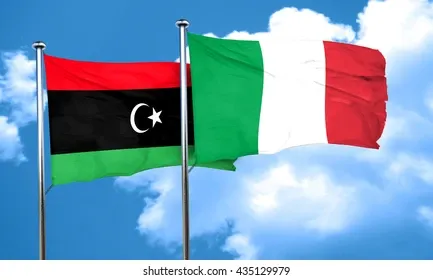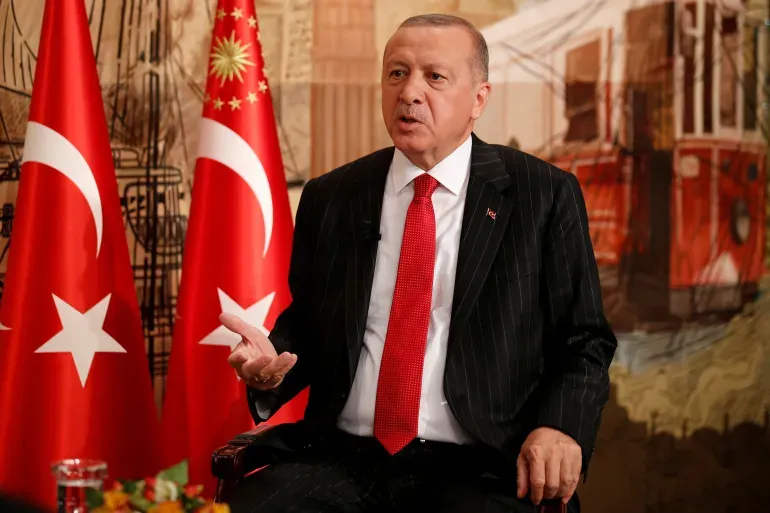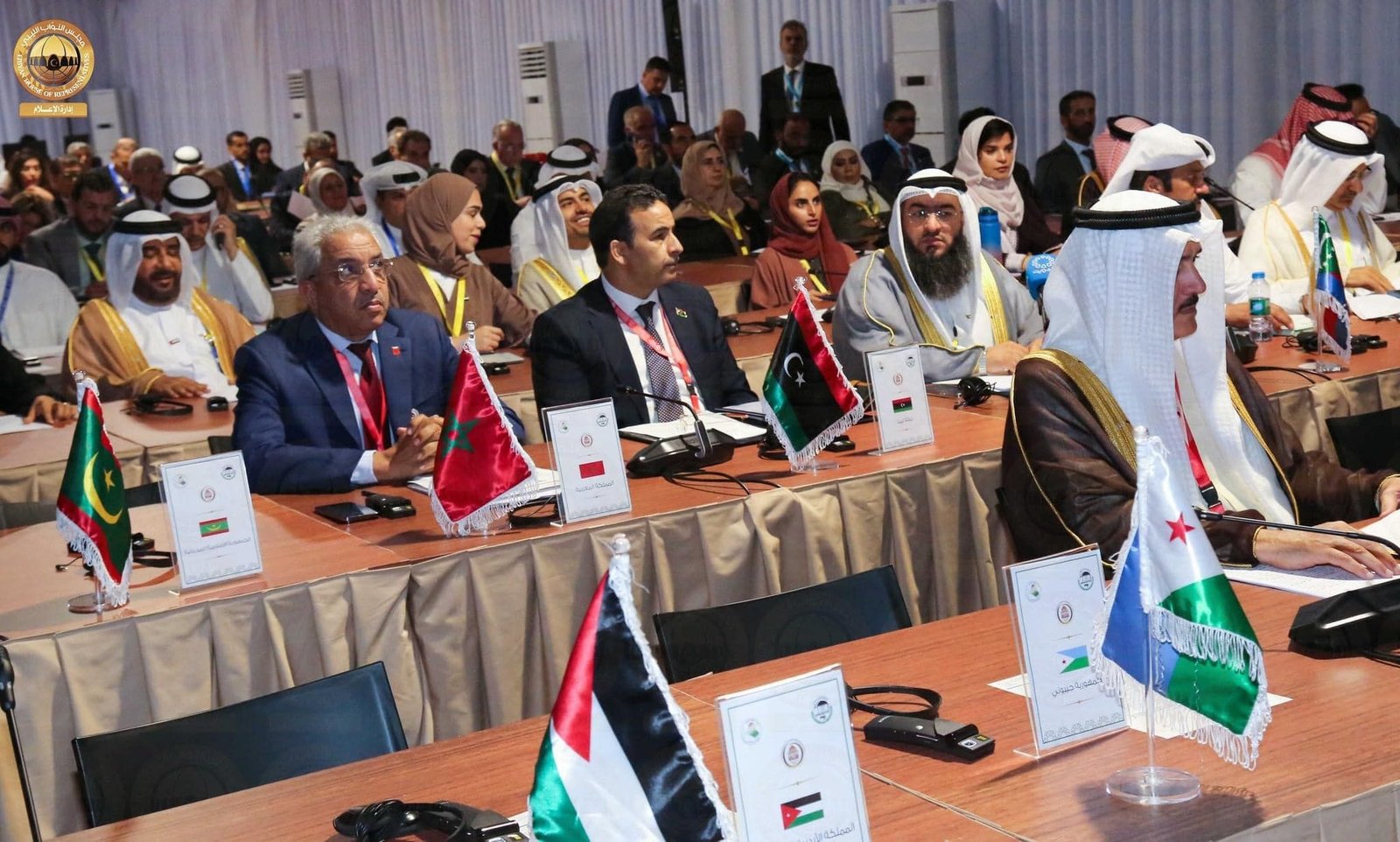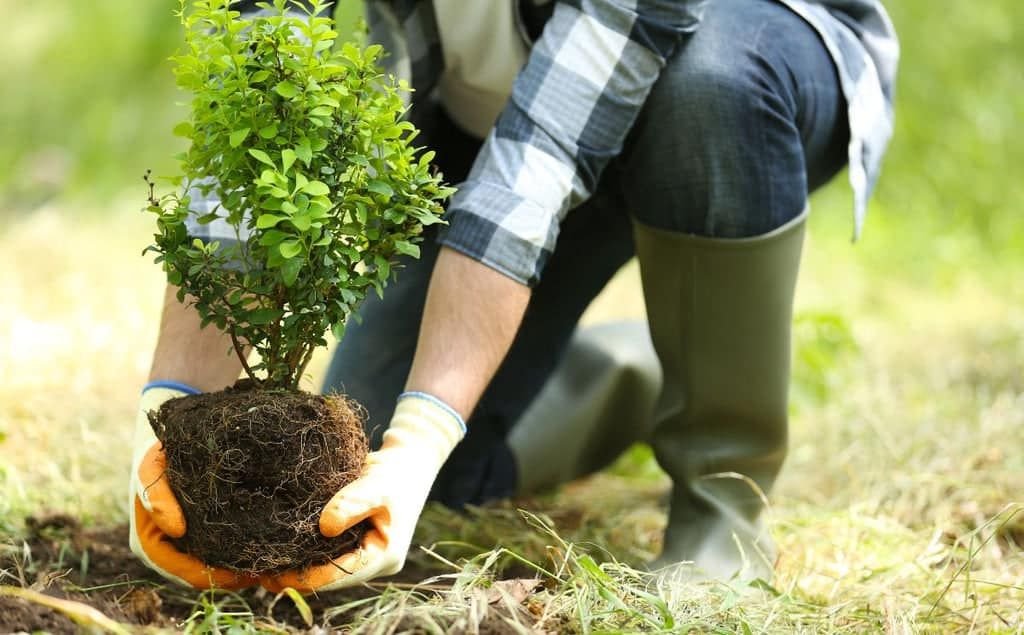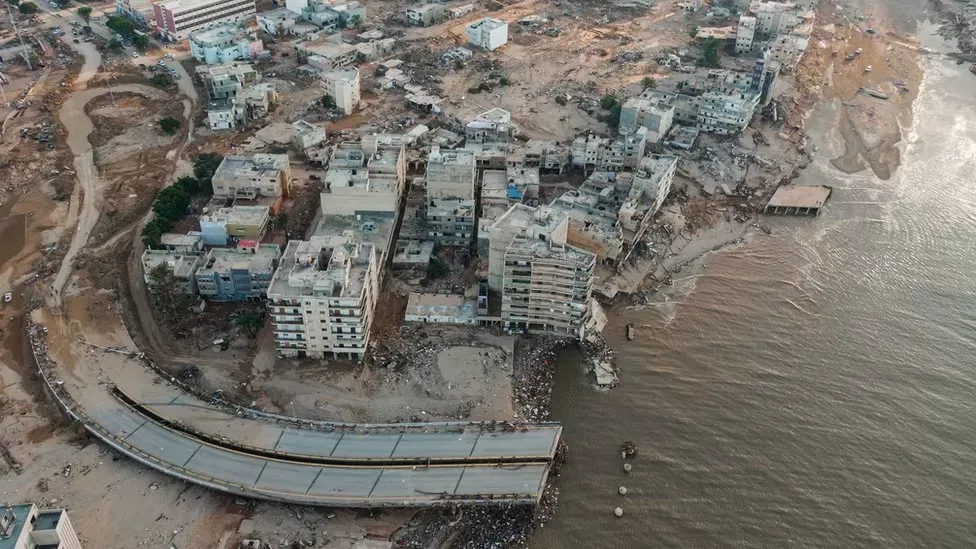The devastating floods which killed thousands in eastern Libya a month ago were the result of a destructive force of nature, but BBC Arabic has uncovered evidence that mismanagement by the local authorities led to many deaths that could have been prevented.
There are three main accusations:
Firstly, residents of Derna, the hardest-hit town, say they were told to stay at home rather than being evacuated even though it was known that Storm Daniel was coming.
Secondly, local and regional authorities are accused of failing to address the danger posed by the dams on the Derna riverbed, which runs through the town. Two dams spanning the Derna valley inland from the city burst on 11 September, causing the catastrophic flooding.
Finally, the authorities are accused of hindering the aid effort in the days immediately after the tragedy.
Anger in Derna escalated into protests on 18 September and the home of the mayor – who later resigned – was subsequently burned down.
The death toll remains unknown, with many bodies believed to have been washed out to sea. At least 4,000 people have been confirmed dead and another 10,000 reported missing in a town with a population of about 90,000.
Evacuation failings
Since the fall of long-time Libyan leader Muammar Gaddafi in 2011, the country has been divided between a UN-backed government in the capital, Tripoli, and a rival authority backed by military strongman General Khalifa Haftar, whose forces control eastern Libya, including Derna.
Ahead of the arrival of Storm Daniel, various bodies in the east held emergency meetings and subsequently issued instructions to the region’s residents.
These generally focused on the evacuation of coastal and low-lying areas in Derna, and stay-at-home orders for other parts of the city and wider region.
But residents have told BBC Arabic that evacuation efforts were inadequate in a number of respects:
- they focused on the wrong part of the city
- the warnings did not reach many of the people that needed to hear them
- no sufficient provision was made for where evacuated people should shelter
- and there were various conflicting stay-at-home orders and curfews.
